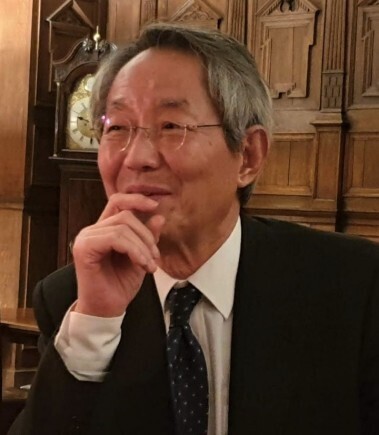*Editor’s note: K-VIBE invites experts from various K-culture sectors to share their extraordinary discovery about the Korean culture.
Doc. Earm’s ‘K-Health’: The Meaning Behind "The Human Body Is 70 Percent Water"
By Yung E. Earm (Professor Emeritus, Department of Physiology, College of Medicine, Seoul National University; Research Fellow, Department of Physiology, Anatomy and Genetics, University of Oxford )

With scorching heat persisting day after day, many people are reaching for water. Water is, in fact, one of the most vital elements for our body, making up about 70 percent of it.
Humans can survive for a week without food, but not without water. This is because every biological process requires water, particularly the excretion of waste products generated by metabolism. Waste accumulated in the blood is filtered by the kidneys and expelled in the form of urine. Since water leaves the body in urine, it must be replenished. Additional water lost through bowel movements and perspiration also needs to be replaced.
Although water intake theoretically only needs to match the amount lost, drinking somewhat more helps maintain smoother metabolism and waste elimination.
From a medical perspective, drinking only as much water as the body expels is sufficient. Still, many experts — including some physicians — recommend higher amounts, often suggesting 1.2 to 2 liters per day. This exceeds the minimum required, yet there is no clear scientific evidence that drinking more than necessary is inherently beneficial. The advice often stems from experience or the belief that “drinking more water does no harm.”
On average, about 1.5 liters of water leave the body daily through urine and stool. Severe shortages can cause dehydration, concentrated blood, circulatory disorders, or even loss of consciousness. On the other hand, excessive water intake can damage kidney function. The key, therefore, is moderation — consuming just as much as the body requires.
It is important to note that the “water” discussed here refers to pure water without additives. Soft drinks, sports beverages, colas, and fruit juices are not healthy substitutes. Even so-called zero-calorie drinks are problematic, as artificial methods are used to remove sugar. Some researchers have even suggested such drinks may increase the risk of diabetes. Decaffeinated coffee is also less ideal, as chemical processes are involved in removing caffeine.
In Seoul, the city provides “Arisu” tap water, which is drinkable. Still, many people prefer bottled or boiled water, partly because boiling changes the taste by driving off dissolved gases. In areas where contamination is suspected, however, boiling water is essential to kill harmful bacteria.
Interestingly, completely pure water is not always ideal for drinking. Distilled or ion-purified water, while chemically clean, tends to lack flavor when used for tea or coffee. It is water in its natural balance, rather than in absolute purity, that is most suitable for consumption.
Water’s importance extends far beyond health. Human civilization itself has developed around water, to the point that entire histories of humanity have been written through the lens of water.
Looking ahead, water could become an even greater resource than oil — a vital element shaping the future of societies.
(C) Yonhap News Agency. All Rights Reserved























